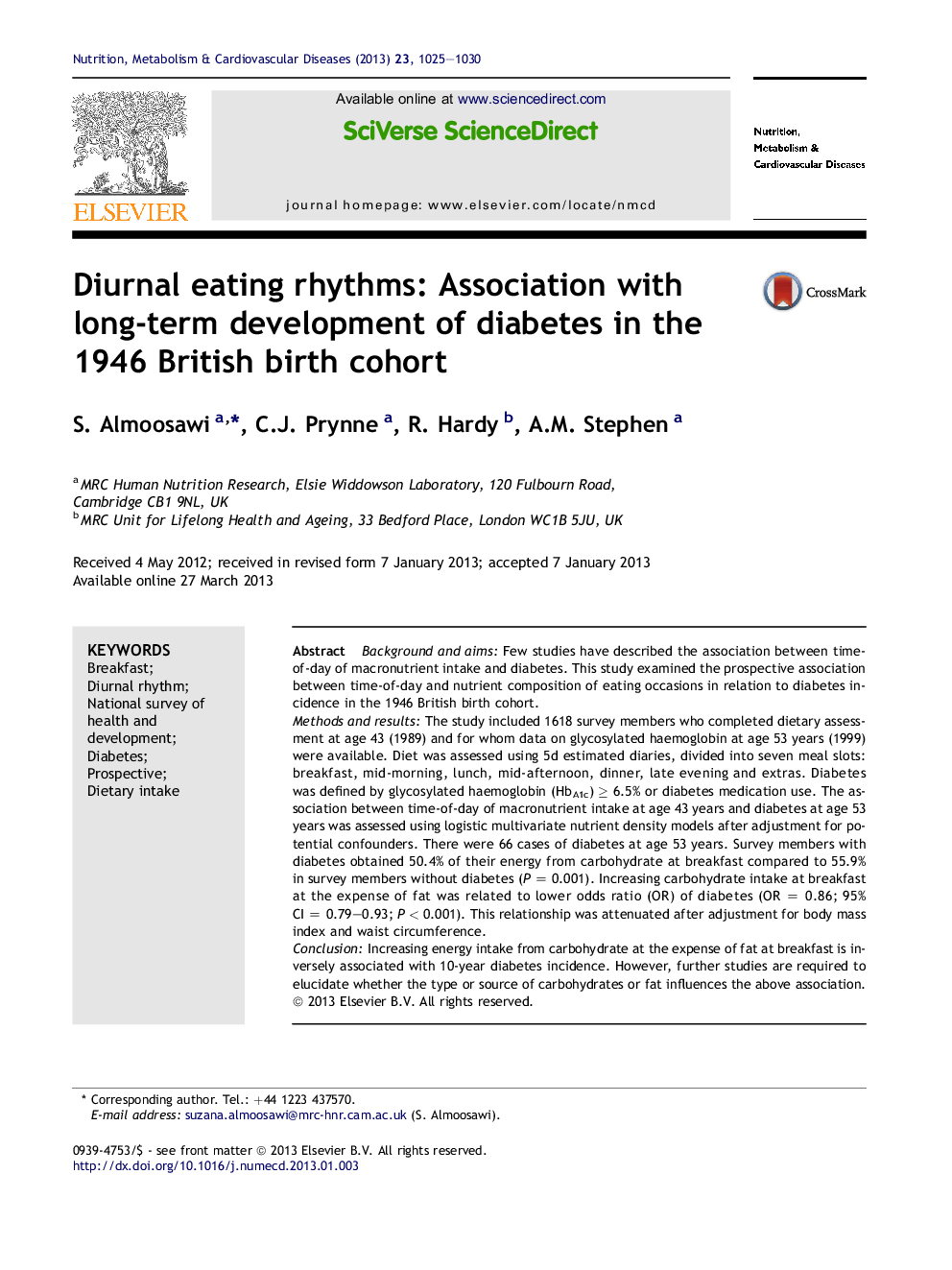| Article ID | Journal | Published Year | Pages | File Type |
|---|---|---|---|---|
| 3002267 | Nutrition, Metabolism and Cardiovascular Diseases | 2013 | 6 Pages |
Background and aimsFew studies have described the association between time-of-day of macronutrient intake and diabetes. This study examined the prospective association between time-of-day and nutrient composition of eating occasions in relation to diabetes incidence in the 1946 British birth cohort.Methods and resultsThe study included 1618 survey members who completed dietary assessment at age 43 (1989) and for whom data on glycosylated haemoglobin at age 53 years (1999) were available. Diet was assessed using 5d estimated diaries, divided into seven meal slots: breakfast, mid-morning, lunch, mid-afternoon, dinner, late evening and extras. Diabetes was defined by glycosylated haemoglobin (HbA1c) ≥ 6.5% or diabetes medication use. The association between time-of-day of macronutrient intake at age 43 years and diabetes at age 53 years was assessed using logistic multivariate nutrient density models after adjustment for potential confounders. There were 66 cases of diabetes at age 53 years. Survey members with diabetes obtained 50.4% of their energy from carbohydrate at breakfast compared to 55.9% in survey members without diabetes (P = 0.001). Increasing carbohydrate intake at breakfast at the expense of fat was related to lower odds ratio (OR) of diabetes (OR = 0.86; 95%CI = 0.79–0.93; P < 0.001). This relationship was attenuated after adjustment for body mass index and waist circumference.ConclusionIncreasing energy intake from carbohydrate at the expense of fat at breakfast is inversely associated with 10-year diabetes incidence. However, further studies are required to elucidate whether the type or source of carbohydrates or fat influences the above association.
